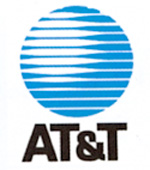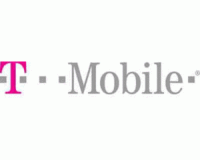
The merger raises the spectre of a renewed monopoly (as though the former SBC hadn't moved decisively in that direction years ago). The deal will take a year to clear although AT&T officials insist they have the stroke with the bureaucracy to get it done.
And they do. That's the problem.
I can't tell you how many trillions of dollars American consumers have paid over the last decades, over and above their real value, for wired and wireless bits, thanks to monopolistic practices we foresaw in the mid-1990s, tried to deal with, and then saw politics unravel.
The whole idea of the government, from the beginning, was to separate the infrastructure from the service. Thanks to a compliant Bush Administration, and Clinton appointees who were outmaneuvered, the Bell operating companies overthrew that deal. This led to the merger mania which now sees us with only three “choices” – AT&T, Verizon and Comcast – for most people just two of the three, and for others just one.

It's managed in a wholly monopolistic fashion. The aim of any wireless connection should be to run on wireless as little as possible. That's why WiFi works so well. You quickly move to a wired system, which thanks to dense wavelength multiplexing on fiber cables can go at extreme speeds for almost no money. You may then offload to wireless to reach the destination, but it should all look like the Internet.
Unfortunately, with AT&T (and Verizon) that's not the way it works. Instead you're running on a proprietary system, and wireless relays that cost serious money to maintain. These are high-cost, low volume networks, which is one reason why wireless sessions cost so much.

Google cares about costs. No one else in the market does.
Sprint, now the third big wireless carrier, has surrendered to this vision. Sprint is becoming a Google brand. If a way can be found to run Clear (in which Google is an investor) at a reasonable price-per-bit, then you have a second on-ramp from wireless to the Google Network.
The problem for Google is that it can't let you know this. It can't let you know that its cost advantage is orders-of-magnitude over AT&T, or Verizon, when it comes to the provision of Internet stuff.
Because if that were known then Google would be the monopoly, not AT&T. Much better for AT&T to take the accusation on to itself, take on the government, and be the company consumers love to hate, while Google keeps the love. The love, that is to say reputation, is more important in the long term than “control.” With government out of the way, Google can remain a benevolent dictator. And its reign has, on the whole, been benevolent.

Google will quietly rake in the Internet market pot.











I thought one of the outcomes of the 2007 FCC Auction was that Google would back off and Verizon/ATT would run Android on the network. Now we have Android crippled by carrier geniuses who figure customers really want fewer features/higher bills.
My wife spends over 90% of her iphone time on wireless.
I’m starting to think I may be on my last cellular phone.
I thought one of the outcomes of the 2007 FCC Auction was that Google would back off and Verizon/ATT would run Android on the network. Now we have Android crippled by carrier geniuses who figure customers really want fewer features/higher bills.
My wife spends over 90% of her iphone time on wireless.
I’m starting to think I may be on my last cellular phone.
You shared such a great information with us it is really knowledgeable for us.I was not aware about it.
You shared such a great information with us it is really knowledgeable for us.I was not aware about it.